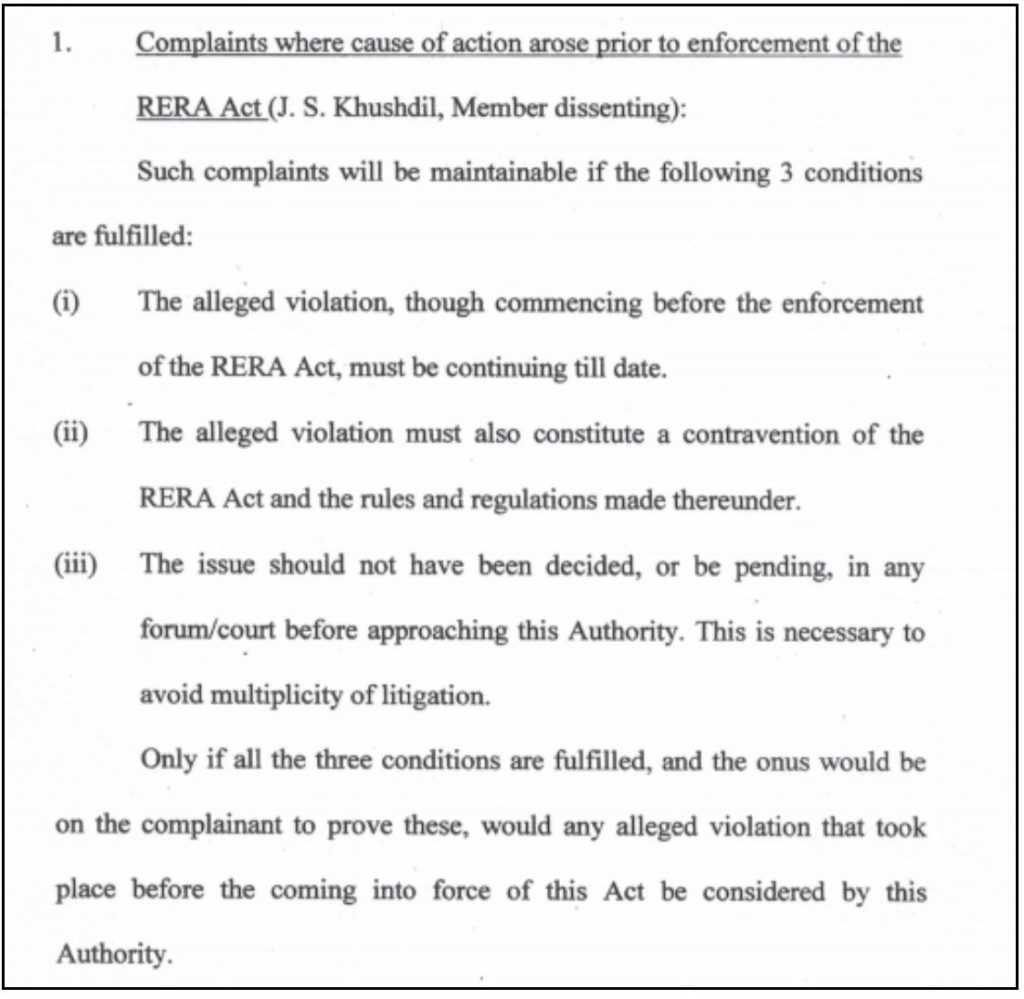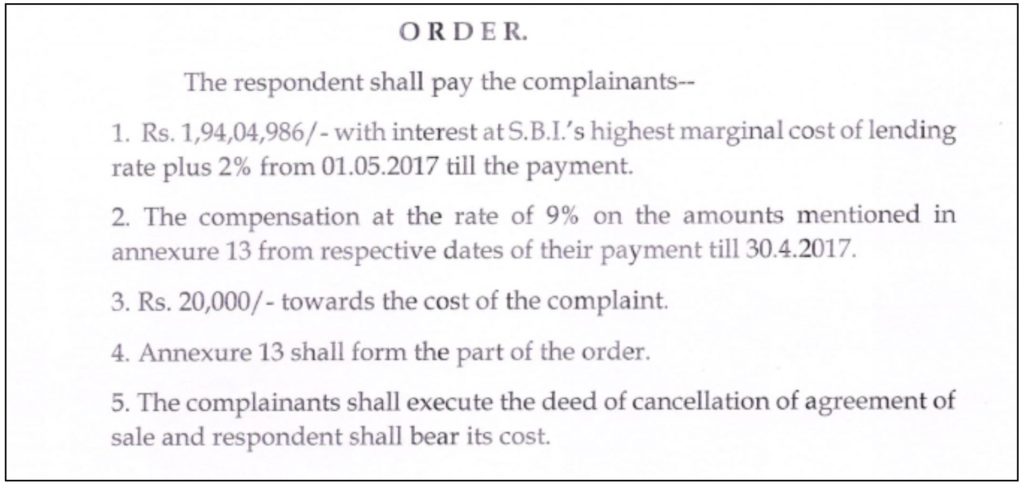The RERA act and the subsequent rules were made to bring relief to home buyers and more importantly bring in transparency & accountability in the real estate sector. Here is a review of some of the important orders made by RERAs in different states.
The Real Estate (Regulation and Development) Act (commonly known as the RERA Act) was passed in 2016 to bring in transparency and accountability in the real estate sector by creating a mechanism to address issues such as delay in project completion and delivery, full disclosure of all the details, and grievance redressal by safeguarding the interests of buyers as well as the developers. Factly had earlier published an explainer on the rights of homebuyers under the RERA Act. In this story, we look at some of the important rulings of the various state Real Estate Regulatory Authorities (RERA) across the country.
34 States/UTs have notified rules under RERA
According to the Ministry of Housing and Urban Affairs, 34 States/UTs have notified rules under RERA as of 09 January 2021. Nagaland is under process to notify rules while West Bengal has enacted its own legislation which has been challenged before the Supreme Court. A total of 30 States/UTs have established the Real Estate Regulatory Authority.
More than 60,000 cases have been disposed since RERA was enacted
A total of 59,621 Real Estate Projects and 46,276 Real Estate Agents were registered under RERA across the country as on 09 January 2021, since RERA came into force. Compared to 11 January 2020, the number of registered projects and agents have both increased by over 21% in almost a year. Over 19,171 cases have been disposed of in the past year. At the same time, more than sixty thousand cases have been disposed of so far. Uttar Pradesh contributed to over 40% of these cases followed by Haryana contributing to more than 20%. Haryana has two Regulatory Authorities. One has been set up in Gurugram to deal with the issues there and the other is set up at Panchkula to cover the rest of Haryana.
Any aggrieved person can make a complaint to the State RERA in case of violations
Any aggrieved person, (a buyer, agent, or developer) may file a complaint with the respective State RERA if there is a violation of the provisions of the respective act or the rules. In this story, some key issues such as possession delays, the jurisdiction of RERA, the constitutional validity of provisions, and others are discussed through relevant case laws.
Jurisdiction of RERA was clarified by Punjab RERA
In Bikramjit Singh Vs, M/s HP Singh, the Punjab RERA held that RERA does not extend to projects whose application has been rejected by the authority. Further, it was also stated that complaints against projects not registered with RERA will not be entertained by the authority. In this judgement, the authority also clarified the maintainability of a complaint in those cases where the violations occurred before the act was enforced. It was stated that such complaints would be entertained only if three conditions were fulfilled-
- The alleged violations which commenced before the enforcement of the act must continue to date.
- The alleged violations must also be a violation of the RERA Act or RERA rulesn
- No other forum or court should have decided or left the case in pending to prevent a multiplicity of litigation.

Cases pending or ongoing with other tribunals will not be entertained by RERA
The authority in Gurugram, Haryana in Sh. Sukhbir Singh Grewal Vs. M/s MVL Ltd, reiterated that it will not entertain any case which is already pending in another tribunal or court. In this particular case, the buyer had filed a case against the builder for delay in giving possession of property beyond the date mentioned in the agreement. The builder submitted that the delay was a result of the interim order passed by SEBI. The builder had moved the Securities Appellate Tribunal (SAT) challenging SEBI’s decision. RERA stated that ‘As the matter is already with the SEBI/SAT, accordingly there is no case left for the present before this authority and to continue further proceedings in the matter. Let the issue be decided by the SEBI/SAT. Once the SAT set aside the order of the SEBI then the only allottee may come to us for proceedings under the RERA Act.’
Delay in possession involves refund of payment and interest
In Sukhbir Singh Vs MVL Ltd., the complaint was lodged against the builder due to delay in giving possession of the property. In that case, RERA also added that the remedy according to them would have been the refund of money paid by the complainant along with interest as per the prescribed rate. However, the matter was being dealt with by SEBI and SAT.
Delay in delivery of the project has also been addressed in Avinash Saraf Vs. Runwal Homes Pvt Ltd by the Maharashtra RERA. In Avinash Saraf Vs, Runwal Homes Pvt Ltd., the complainants asserted that they had paid 97% of the total consideration of the flat. The agreement stated that the flat would be handed over by August 2016. However, the builder had failed to do so even a year later, when the complaint was filed. The bank had also collected the loan EMIs with interest from the agreed date of handover. The complainants sought a refund of the amount paid along with an interest of 21% per annum in addition to compensation from the builder. In this case, Maharashtra’s RERA held that RERA has jurisdiction even for agreements executed before RERA was enacted since the cause of action has survived even after RERA came into force. Further, it held that possession without a certificate is illegal. The authority granted the complainant a full refund along with interest and the cost of the complaint.

Housing projects should be registered only if the area exceeds 500 square meters ‘or’ if the number of flats exceeds 8
As per the RERA Act, properties where the area of land proposed to be developed does not exceed five hundred square meters or the number of apartments proposed to be developed does not exceed eight need not register the project with RERA.
In Geetanjali Aman Constructions Vs Hrishikesh Ramesh Paranjpe, the construction company approached the Maharashtra Real Estate Appellate Tribunal against the orders passed by RERA when two homebuyers filed complaints that the developer had not registered the ongoing project with RERA. The state’s RERA ruled that the developer should pay a penalty of 3% of the project cost as per RERA provisions. Later, the developer sought a review of the order as there were errors in the area of the project and the number of flats. The RERA imposed an additional penalty until the project is registered as the number of flats exceeded eight. Upon approaching the Tribunal, it quashed both the orders ruling that if either of the two parameters is met, one need not register the housing project with RERA.
RERA is applicable to state run entities too
In September 2020, the Rajasthan RERA in a landmark decision held that the RERA Act is mandatory in nature. In Vinod Agarwal Vs. Jaipur Development Authority (JDA), the complainant said that he had participated in an auction organized by JDA and was allotted a plot in the project. He had also deposited 15% of the amount with JDA. However, JDA further issued a demand note of 35% of the amount and 15% interest in case of delay, without executing the agreement for sale.
As per RERA Act, the developer is not allowed to accept more than 10% of the cost without executing or getting an agreement of sale registered. The argument put forth by the respondent was that it is a statutory development authority, it is guided by Rajasthan Improvement Trust (Disposal of Urban Land) Rules, 1974. Further, it was added that the auction conditions did not stipulate any specific requirement for executing an agreement of sale. Also, the auction of the plot took place on an as-is-where-is basis. However, RERA ruled that the project was registered under it and thus, all rules and regulations under the Act would be applicable to the project as well and directed JDA to execute the sale agreement before demanding an additional amount. Section 13 of the Act mandates the execution of the sale agreement.
Constitutional validity of RERA Act was challenged in Bombay HC
Builders filed a case against the Union of India challenging the constitutional validity of various provisions of the RERA Act, the Maharashtra RERA rules such as provisions addressing delay in possession, arbitrary interests on builders, etc. While upholding certain sections of the Act and rules, the Bombay High Court struck down one of the qualifications for appointment of a Judicial Member prescribed in Section 46(1)(b) of the act.
Issue of insolvency in real estate projects was addressed
Sushil Ansal Vs. Ashok Tripathi case involved challenging a decree in NCLAT or National Company Law Appellate Tribunal, wherein it was necessary to file an insolvency petition by a company for paying Rs. 73 lakhs awarded to the complainants under UP RERA. NCLAT ruled that homebuyers could turn to civil law for enforcing their decree since an amendment in 2019 to the Insolvency & Bankruptcy Code (IBC) made it necessary that either 100 buyers or 10% of the allottees file the petition.
Only a few orders of various RERAs have been discussed in this story. One could go through the thousands of orders delivered by these authorities before filing a relevant complaint.
Featured Image: RERA Act


